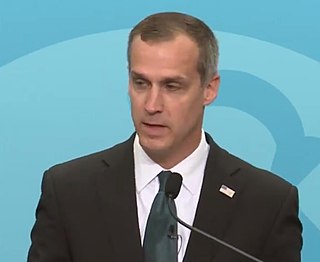A Quote by Antonio Guterres
It's true that globalization, with all its fantastic improvements in the world and the technological progress linked to it, has increased inequality at country level, especially inside countries. And there are people that were left behind - people, sectors, regions - that has created a sense of frustration in the rust belts of the world.
Related Quotes
The gods were bored and so they created man. Adam was bored because he was alone, so Eve was created. Thus boredom entered the world, and increased in proportion to the increase in population. Adam was bored alone, then Adam and Eve were bored together; them Adam and Eve and Cain and Abel were bored en famille; then the population of the world increased, and the people were bored en masse.
Like any developing country, it has an inequality of wealth. In the Chinese case, it is particularly [pronounced] by the fact that they decided they couldn't make the whole country move forward simultaneously, so they've started region by region. So the interior regions are much less well off than the coastal regions. And this is certainly a huge challenge, because it produces a flow of populations from the poorer regions to the richer regions.
You can't just stop technological progress. Even if one country stops researching artificial intelligence, some other countries will continue to do it. The real question is what to do with the technology. You can use exactly the same technology for very different social and political purposes. So I think people shouldn't be focused on the question of how to stop technological progress because this is impossible. Instead the question should be what kind of usage to make of the new technology. And here we still have quite a lot of power to influence the direction it's taking.
The most powerful country in the world is on its way back to the Stone Age. They say, "We were elected by the gods to govern the planet." But the truth is that what counts is getting hold of the last oil reserves. Instead of finding alternative energy sources, we try to subjugate entire regions of the world. People do not understand that by doing this, the country is going to absolute ruin.
One hundred years ago, people were faced with the choice of learning to read or remaining illiterate laborers who would be left behind as have-nots in a rapidly modernizing world. In the coming century, being able to command a world that will be thoroughly computerized will set apart those who can live successfully in the future from those who will be utterly left behind.
Most people believe that inequality is rising - and indeed it has been rising for a while in a number of rich countries. And there is lots of talk and realization of this. It's harder to understand that at the same time, you can actually have global inequality going down. Technically speaking, national inequality can increase in every single country and yet global inequality can go down. And why it is going down is because very large, populous, and relatively poor countries like India and China are growing quite fast.
What is true, and I think that we can't deny it, is that some of the same concerns about globalization, about technology, rapid social change that were reflected in Brexit, that's been reflected in some of the debates in Germany and France and other places, that those exist in the United States as well. My view is that over the long term, over the next 10, 15, 20 years, if we are able to address the legitimate economic concerns of those who feel left behind by globalization, then many of these tensions will be reduced. And we will see a world that is less divided.
I think that the movement against the World Bank, against the globalization process that is happening, is very positive. We need a globalization, a globalization of people who are committed to social justice, to economic justice. We need a globalization of people who are committed to saving this earth, to making sure that the water is drinkable, that the air is breathable.
































